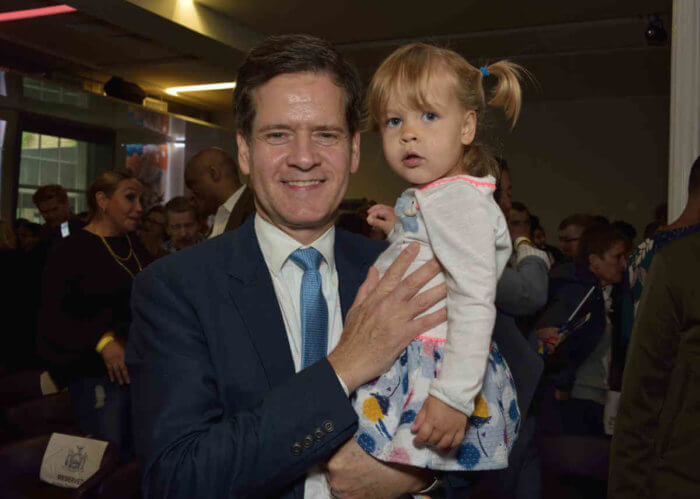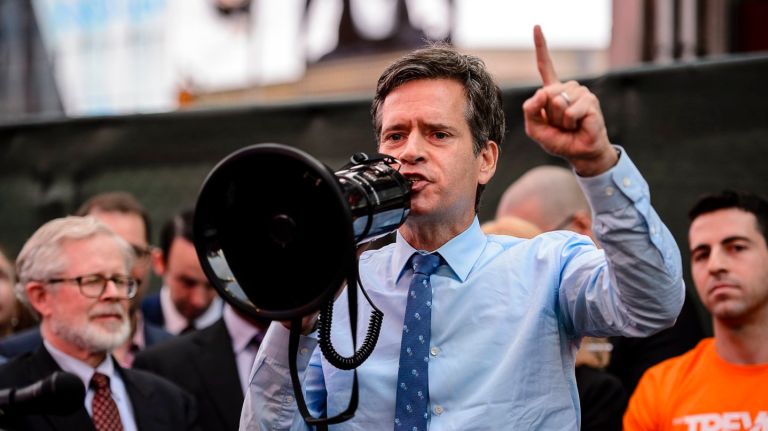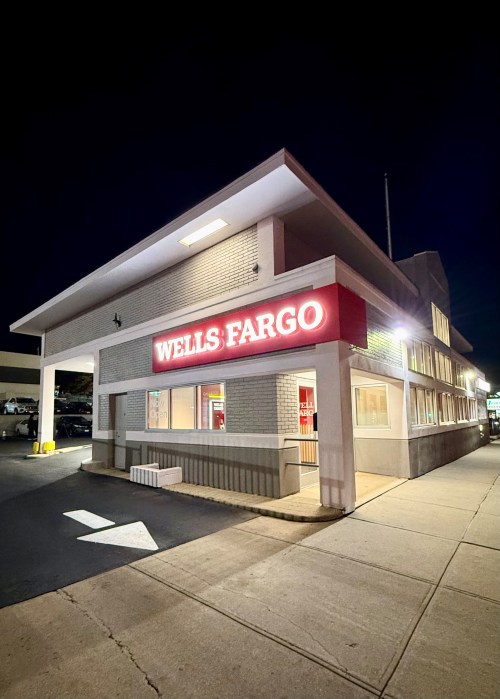He’s got a plan for that.
State Senator Brad Hoylman of Manhattan, fresh off a primary victory for reelection to his Albany post, is diving into the race for Manhattan borough president — and he’s already got his vision mapped out well ahead of the June 2021 Democratic primary to succeed term-limited Beep Gale Brewer.
The economy, education, healthcare, community boards, and — yes — LGBTQ issues are among the priorities on Hoylman’s to-do list should he be elected borough president in a race that already features term-limited City Councilmembers Ben Kallos and Mark Levine of Manhattan as well as Elizabeth Caputo, who serves on Community Board 7.
The news of Hoylman’s decision to run, first reported by the Daily News on August 17, comes in the midst of a coronavirus pandemic that has battered New Yorkers on a number of fronts. Hoylman believes he is the best person to help right the ship in his home borough and address the host of issues that have emerged as a result of the pandemic — as well as other pressing problems facing Manhattanites since prior to the COVID-19 outbreak.
Hoylman said he hopes to follow in the footsteps of Brewer and build on his accomplishments in the Senate to deliver for the people of Manhattan.
“I’ve passed 79 bills as a senator and I think I can really bring creativity, coalition-building, and perseverance to the borough-wide position,” Hoylman said.
The state senator has made a name for himself in Albany, especially on LGBTQ issues, since succeeding out gay State Senator Tom Duane in 2013. He is currently leading the charge to repeal the discriminatory loitering law known as a ban on Walking While Trans and previously spearheaded successful legislative efforts to enact the Gender Expression Non-Discrimination Act (GENDA), ban conversion therapy practiced on minors, and legalize gestational surrogacy. He serves as chair of the powerful Senate Judiciary Committee.

Hoylman is aiming to trade in his seat in the Senate for the role of an executive who can craft but cannot vote on legislation. He is making the case that he has already used his role as a state senator to effect change in his own backyard and will continue to do so despite the limited powers of the office he seeks. He cited his bill to ban floating billboards on the Hudson River, his work in negotiating a reduction in the speed limit on the West Side Highway, and his joint effort with Assemblymember Deborah Glick to prohibit overnight garbage truck parking on city streets, among other initiatives.
Looking ahead to the competitive race, Hoylman brought up those who have been asking whether there is a future for Manhattan and New York City as a whole.
“The answer has to be yes and the answer has to be that our borough represents the future of our city,” Hoylman said. “We have to get that right, whether it’s small businesses or homelessness or a sense of confusion about our public schools and overpolicing.”
He added,” These are issues that we’re going to have to sort out… I think I’ll be extremely eager to be part of that problem-solving on the road to borough president.”
To that end, Hoylman said there are opportunities to “reset the priorities for the use of” 20 million square feet of empty office space scattered across Manhattan, pointing to the homelessness and affordability crisis plaguing borough residents.
“Mom and pops and locally-owned businesses are evaporating before our very eyes during the virus,” he said.
Regarding housing construction, Hoylman said, “The playbook has been to favor luxury development,” the hope being that would encompass opportunities for affordable housing units as well. But, he said, “None of that has worked to the extent that we need it to, and with this enormous crisis comes a great opportunity to develop what I’m calling a Manhattan Marshall Plan.”
That Manhattan Marshall Plan envisioned by Holyman calls for the development and advancement of a formal plan for the economic and neighborhood recovery of the borough after COVID-19.
“There is no more important task at hand, in my mind, in getting New Yorkers back up on their feet,” Hoylman said. “And that, in my opinion, has to begin at the community level.”
Hoylman also said he plans to take on what he calls a “precipitous decline in city services” during recent months and years, underscoring the need for a task force dedicated to city services and quality of life issues to bolster public amenities for residents.
Hoylman, who served as the chair of Community Board 2 prior to his time in the Senate, also touted the budgeting powers of the borough president and highlighted his goal of spreading that cash around though a plan he calls Community Board Budgeting. Under that initiative, the borough president would delegate funding authority to local community boards.
Another local issue of concern for Hoylman, who has two daughters with husband David Sigal, is the city’s education system — and he’s thinking beyond the contentious debates over school openings and closings in the COVID era. Hoylman also wants to focus on another key area of education: enrollment.
“I’ve been a public school parent and if you’re trying to figure out the enrollment process, it’s maddening,” Hoylman explained. “Every school has a different website; there’s nowhere to go to. So I want to create something I’m calling the Public School Parent Resource Advocacy Center to help parents in low-income communities in Manhattan navigate this byzantine enrollment process.”
Hoylman emphasized that even as he takes on the race for borough president, he is committed to continuing his work in the Senate in advancing LGBTQ rights — before he leaves his current seat he wants to win repeal of the ban on Walking While Trans. Then, once that is complete, he said there are new ways to take on queer issues as borough president.
He plans to address issues facing LGBTQ youth and seniors, fight for access to PEP and PrEP, ensure that queer communities of color get their fair share of city funding, make sure trans New Yorkers receive adequate healthcare, and focus on helping trans people who are incarcerated.
“The number of issues that concern the LGBTQ community have really multiplied since COVID-19 struck and caused great stress not just in healthcare, but in our economic sphere and the joblessness, poverty, and disparities in healthcare,” Hoylman said. “Things so many people take for granted are still out of reach for many LGBTQ New Yorkers.”
Hoylman acknowledged that he is the only out gay man in the State Senate and said he takes “representation of our community extremely seriously” as he vies for a new office. He takes comfort in knowing that out gay State Senate candidate Jabari Brisport, who won his Democratic primary in Brooklyn, is all but certain to become the first out LGBTQ person of color elected to the New York State Legislature.
“I’m not the first queer person to run for borough president; Deborah Glick did it first,” Hoylman said, referring to his Assembly colleague’s bid for Manhattan beep in 1997. If elected, he would be the first out queer person elected to the office.
But before he crosses that hurdle, he has to push through a crowded field of rivals who entered the race earlier than he did and have already jumped out to a head start in fundraising. Hoylman is not necessarily concerned about that at this point.
“Let’s be honest here,” Hoylman said. “New Yorkers are more interested in electing a president right now than a borough president. So yes, some people have raised money and presumably some political deals have been made in some parts of the borough. But from what I can see, there is still a good, solid path to victory.”
This story first appeared on our sister publication gaycitynews.com.































